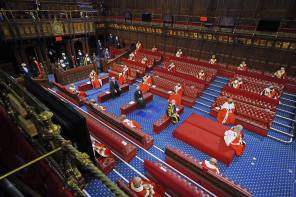
In a statement published today (January 26), Laura Trott, under-secretary of state for pensions, said the decision was taken to “ensure the continued stability of the policy in light of the impact of Covid-19 and prevailing economic factors”.
The 2023-24 annual thresholds mean the automatic enrolment earnings trigger will remain at £10,000 and the lower earnings limit of the qualifying earnings band will remain at £6,240 with the upper earnings band staying at £50,270.
Trott said: “We want to ensure that our approach continues to enable individuals, for whom it makes economic sense, to save towards their pensions whilst also ensuring affordability for employers and taxpayers.”
Speaking to FTAdviser on the back of the statement, Tom Selby, head of retirement policy at AJ Bell, said over the medium-term, boosting pension contributions will need to become a priority for either this government or its successor.
However, he said given the pressure facing individuals and businesses, it is understandable the government is equivocating over expanding auto-enrolment at this point in time.
“The reality is that millions of households are struggling to meet day-to-day living costs,” he said.
“There are signs that inflation will come down in the coming months, but the latest CPI figure remains in the double-digits and the Bank of England’s target of 2 percent still feels a long way away.
“Auto-enrolment opt-outs haven’t spiked dramatically as a result of this yet, but research we carried out towards the end of last year showed a third of workers could quit their workplace pension in response to rising living costs. This is the sort of scenario ministers will be desperate to avoid.”
Helen Morrissey, senior pensions and retirement analyst at Hargreaves Lansdown, said the statement will have come as “no surprise”.
“With budgets being squeezed like never before people are making difficult financial decisions based on balancing saving for their future with meeting their day-to-day living costs,” she said.
“Any move to increase the amount going into a pension by actively reducing or removing earnings limits may be enough to tip people over the edge and opt out.
“However, it’s worth saying freezing the trigger and lower earnings limits will see more people being brought into auto-enrolment if they get a pay increase.”
DC assets increase
Trott’s statement comes alongside analysis published today by The Pensions Regulator which showed aggregate asset values in occupational DC schemes are now £143bn.
We know the government is keen for more pension assets to be invested into infrastructure, unlocking this capital for the future of the country. David Brooks, Broadstone




